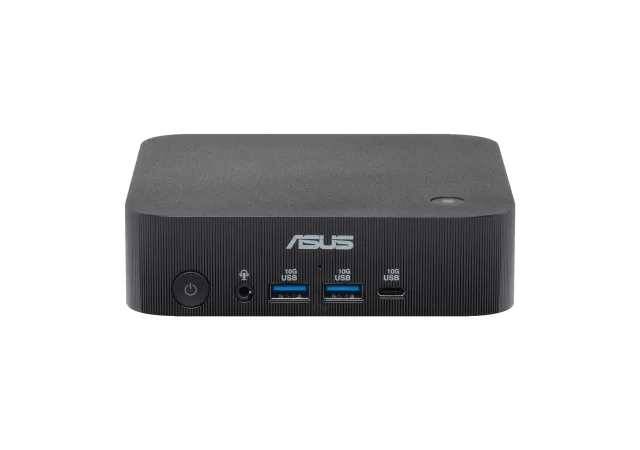- New study reveals 94% of PMEs want flexible work to stay, but need proper tools for collaboration
- Highlights importance of collaboration tools in not only ensuring work efficiency and productivity, but also in making work more enjoyable
SINGAPORE, Jan. 28, 2021 — As Singapore moves into Phase 3, employees are beginning to think about life after the pandemic including the possibilities on how they can restructure their time outside of the traditional 9-to-5 work-week model. Nearly a year ago, non-essential employees were forced to work from home on a consistent basis – many for the first time. Now, a recent study conducted by Lark, a next-generation digital collaboration suite, revealed that what started as a short-term measure is what Singapore Professionals, Managers, and Executives (PMEs) are expecting moving forward.
According to the study, Singapore is poised to offer flexible work arrangements for the long term, but there is still a need to ensure that the right collaboration tool is in place to foster a positive work environment. The study highlights the importance of investing in a collaboration tool that not only enables work efficiency and productivity, but also makes work more enjoyable.
"Singapore organizations are faced with a growing interest in flexible work arrangements and must find ways to adopt and integrate these practices into work routines, or they will see a decrease in employee satisfaction," said Joey Lim, Lark Vice President of Commercial – Asia. "It is understandable that one major concern about this type of arrangement is the impact on team collaboration. With a dispersed workforce, and the option to work remotely, more employees are relying on collaboration tools to communicate, connect, and at the end of the day, get the job done."
To help organizations better understand the impact of flexible work arrangements on employees and the organization at large, Lark and Milieu Insight, a consumer data analytics firm, rolled out a study to 1,000 PMEs in Singapore.
The study reveals several key findings in the following areas:
- The perception of flexible work and existing collaboration tools
- The usage of collaboration tools
- The needs for the future
Current perception of flexible work and existing collaboration tools
During the biggest work-from-home experiment of our time, Singapore employees have far exceeded expectations proving the nation is well positioned for flexible work arrangements in the long-term. Furthermore, 94% of PMEs want flexible work to stay, which means organizations need to ensure that flexible work is the default work arrangement and should go the distance to ensure their employees are supported with the right setup.
This sentiment is consistent across all age groups and is relatively stable across industries such as Healthcare, Architecture, Computer & Technology, Education, Financial Services, Transportation, and Science & Research. This is also consistent across job levels, business decision makers, and the work sector.
However, only one in five PMEs are very satisfied with their current remote and online collaboration work setup. Half are somewhat satisfied while the rest are neutral (22%) or dissatisfied (11%). This also highlights a possible mismatch in satisfaction and perceived adoption among different levels of employees with the decision makers (director level and above) skewing higher (40%) vs the total respondents (25%) in saying their team is very well adapted to using collaboration tools. This disconnect between senior and junior level employees’ views further underscores the importance of ensuring senior members take an active role in utilizing collaboration tools to ensure they understand how they’re being used. It’s equally important for senior members to take steps to collect feedback from their teams on how well the tools are being used, and deploy a tool that enables aligned satisfaction and adoption across all levels.
Usage of collaboration tools
Organizations need to focus on ensuring seamless collaboration across all channels of communication. This starts with first understanding which collaboration features employees most rely on, then ensuring that the proper tools are in place to accommodate multi-channel collaboration.
While the extent of tasks used in a collaboration suite vary depending on the employment position, the top three tasks amongst Singapore PMEs are the same: Chat/messaging, video meetings and emails. To make collaboration between these various channels more seamless, it’s important to deploy a collaboration tool that can cover all three major tasks and more, where possible.
With the rise of remote collaboration, the study also finds that Singapore PMEs use these three features for up to half of their day: Video Meetings (94%), File Search (90%) and Messaging (80%), with one in five PMEs noting messaging takes up more than 50% of their work day.
Future needs to ensure a satisfied workforce
7 in 10 PMEs agree that having one tool to support all their needs is essential in making work more enjoyable, highlighting the need for organizations to look at collaboration tools beyond just the purpose of work productivity. Such a factor is important given today’s work environment and the need to ensure a positive work experience even when you don’t always see each other.
In fact, when asked what they felt the key benefits of having the right collaboration tool were, 64% stated they felt it makes their work easier, followed by 60% who stated it makes them more productive. Furthermore, this was followed by 39% who stated having the right tools can make work more enjoyable – a sentiment shared across all age groups but most strongly felt among the millennial generation (25-39 years old).
"2020 was a difficult year for many as we were forced to stay indoors, adjusting to a new way of life and work. The uplifting results of this study proves that Singapore PMEs are resilient and have done extremely well adapting to the new normal," said Lim. "However, this study highlights the importance of investing in a collaboration tool that not only enables work efficiency and productivity, but also makes work more enjoyable."
To download the infographic, click here
About Lark
Lark is the next-generation collaboration suite that enables teams to do their best work together. The suite primarily consists of Lark Mail, Lark Messenger, Lark Docs, Lark Calendar, Lark Meetings, as well as Lark Workplace which integrates third-party applications. All functionalities are deeply integrated into a single app, which is available on Mac, PC, iOS, and Android.
Serving clients from across the globe, Lark is headquartered in Singapore. Visit www.larksuite.com to start using Lark for free.
About Milieu Insight
The online poll was carried out by Milieu Insight, a Singapore-based consumer research firm. The poll included n=1,000 respondents who are currently employed in a PME role or vocation and working at least 35 hours a week and is representative of age and gender. Responses were collected on the week of November 21, 2020, and the margin of error is +/-3% with a 95% confidence level.





